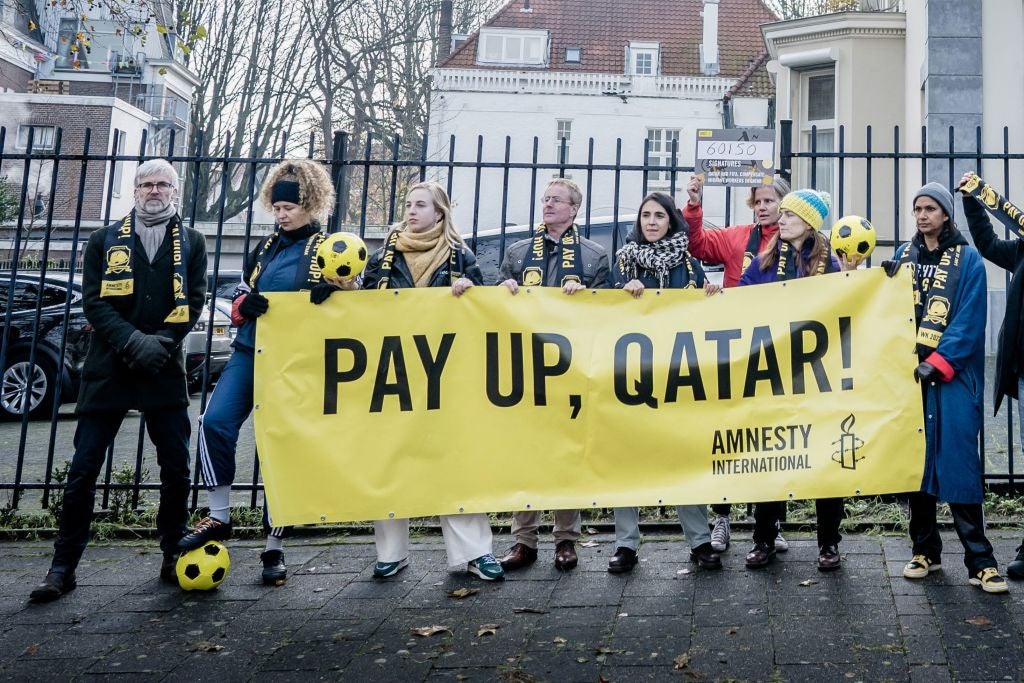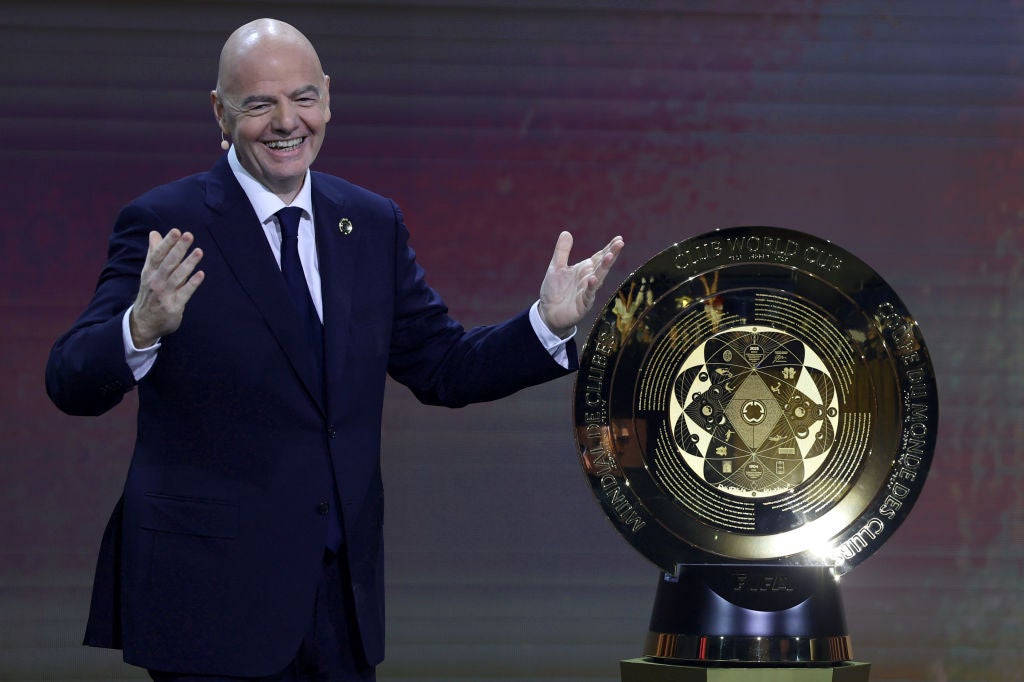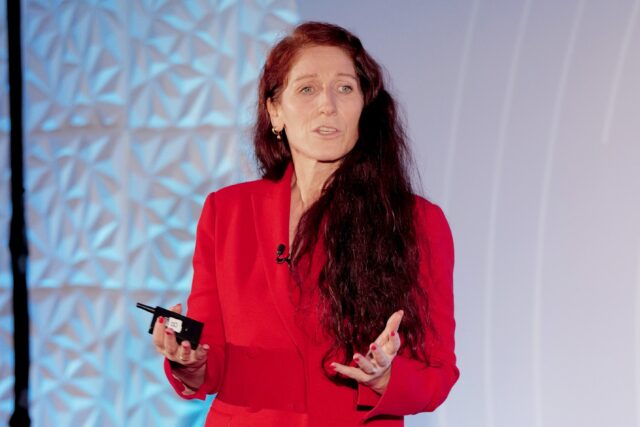Your support helps us to tell the story
From reproductive rights to climate change to Big Tech, The Independent is on the ground when the story is developing. Whether it’s investigating the financials of Elon Musk’s pro-Trump PAC or producing our latest documentary, ‘The A Word’, which shines a light on the American women fighting for reproductive rights, we know how important it is to parse out the facts from the messaging.
At such a critical moment in US history, we need reporters on the ground. Your donation allows us to keep sending journalists to speak to both sides of the story.
The Independent is trusted by Americans across the entire political spectrum. And unlike many other quality news outlets, we choose not to lock Americans out of our reporting and analysis with paywalls. We believe quality journalism should be available to everyone, paid for by those who can afford it.
Your support makes all the difference.
As late as Monday evening, members of the Fifa Council were still unsure how Wednesday’s confirmation of the 2030 and 2034 World Cup hosts will be staged, amid expectation it will be by “round of applause”.
“They might even count the applauses,” two sources said, neither fully joking. That would create even less space for dissent than the fact this extraordinary congress partly takes place online.
If this sounds absurd, it is only in-keeping with the entire process that has got us here. The exact details will be confirmed at Tuesday’s Fifa Council meeting. It has been remarkably curious for a decision that is still seen as the biggest in football, given that the awarding of a World Cup shapes the game’s commercial direction, but then many involved figures interpret this process as a deliberate strategy to ensure Saudi Arabia hosts 2034.
The steps are worth laying out. On 5 October last year, it was suddenly announced that Fifa Council had decided the 2030 World Cup would take place in Morocco, Portugal and Spain, with the opening three matches staged in Uruguay, Argentina and Paraguay, respectively, to celebrate the tournament’s centenary. The gesture of a mere three matches ensured that South America couldn’t have any candidate countries for 2034 hosting due to Fifa’s rotation rules, with the same applying to Europe, Africa and Central and North America, due to the 2026 event in Canada, Mexico and USA.
Fifa announced the very next day that the process had also opened for 2034, but with the inexplicable deadline of a mere 25 days despite the tournament being 11 years out. Saudi Arabia had their bid document ready to go, with grand construction plans for a series of mega-stadiums. Fifa had already dropped the requisite for existing stadiums from seven to four. Potential rivals Australia and New Zealand couldn’t meet the stipulations in that time without a third partner, but the Asian Football Confederation had already announced full support for the Saudi bid.
Despite planned host cities – let alone stadiums – still to be constructed, Fifa gave that bid a record-high score of 419.8 out of 500. The Riyadh-based AS&H Clifford Chance were contracted to put together an “independent human rights context assessment” to support commitments to “upholding international human and labour rights in the full cycle of the competition”, which was criticised by Amnesty International as “a whitewash” and “an elaborate facade”.
If this provokes questions for Wednesday, there isn’t much space to hear them. The “acclamations” for 2030 and 2034 are set to be bundled together, which would mean any refusal to “vote” for Saudi Arabia would also involve voting against the 2030 hosts and potentially your own confederation’s bid.
This is despite Fifa’s own statutes saying that only one World Cup can be awarded at a Congress after the debacle of 2018-22, albeit with the crucial caveat, “except if the Council takes a specific decision in this respect”.
There won’t even be a proper press conference afterwards.

“We are worried,” Norwegian federation head Lise Klaveness said about the lack of transparency in the process. Fifa insist that is not the case, and point to decisions taken at Council.
There are graver reasons for worry. The build-up to the acclamation has seen a spate of reports from human rights groups about 2034. Saudi Arabia’s mega plans and reliance on the Kafala system have already seen Amnesty’s High Stakes Bids report conclude that the “tournament is highly likely to be tarnished by exploitation, discrimination and repression”. “Without a shadow of doubt, workers will die,” the body added.
Supporting this, ITV’s Kingdom Uncovered reported 21,000 workers from Nepal, Bangladesh and India have died since the launch of the Vision 2030 programme in April 2016. The documentary described worker camps without proper healthcare or food. Saudi Arabia can point to reforms of the system in 2021, but Human Rights Watch say these are “limited” and “problematic”.
That will now accompany the more customary criticisms of Saudi “sportswashing”, over repression, women’s rights and capital punishments.
In other words, a multiplication of the issues with Qatar 2022, for which Fifa still hasn’t compensated migrant workers.

The position of the Gianni Infantino presidency on 2022 is that it was “inherited” from the Sepp Blatter era, which offered a temporary deflection from criticism. If so, why bequeath the game with a tournament that will bring even bigger questions?
The official response to that is that Fifa believes collaboration with such states aids “progress”. It’s just that the best counter-argument comes from the last two World Cups. Qatar has already started rowing back on limited reforms. Russia used the World Cup to put on a friendly face while plans were sharpened to invade Ukraine and wreak “hybrid warfare” on the West.
Why has Fifa’s own Council been so silent? Many would put the lack of dissent down to the fact there are only single choices in both processes, but where were the challenges?
Such questions must be put in the context of how the presidents of Fifa and Uefa now have almost total power in their organisations, partly due to a patronage system where money is doled out to member association voters. Many in the game meanwhile point to Infantino’s own burgeoning relationship with Saudi Arabia, that this writer’s book, ‘States of Play’, claims some within the governing body have been uncomfortable with. Sources state Infantino has been on messaging terms with crown prince Mohammed bin Salman since being introduced by Donald Trump, and the Fifa president has made a lot of trips to the kingdom.
It was the state’s football federation that made the initial proposal for a biennial World Cup, an idea perceived as a Fifa trojan horse to push through Infantino’s first plans for an expanded Club World Cup in 2018. Saudi money was strongly suggested as potential funding for that through Softbank, and the kingdom have seen been strong supporters of the inaugural 2025 event in the US, from which Saudi Pro League clubs will enjoy greatly increased profile.

The state did host the penultimate version of the smaller Club World Cup in 2023, which represented its first-ever international tournament. That came after Fifa had struck a deal with Visit Saudi to sponsor the 2023 Women’s World Cup, only to encounter huge push-back from players over the criminalisation of same-sex relationships. There was none of that when Fifa announced Saudi Aramco as a “global partner” earlier this year. Saudi Arabia has become a financial engine of global football. Fifa would say this aids the development of the game. Detractors would point to how drastically increased funds merely aid Infantino’s election promises.
On the other side, football is an obsession in Saudi Arabia, and Bin Salman has long wanted the World Cup as a centre-piece of the nation-building project that is Vision 2030. It just might come in 2034, after 2030 had to go elsewhere, if it even takes place in that year at all. Summer heat means 2034 almost certainly has to be another winter World Cup, but the November-December period brings Ramadan and Riyadh’s hosting of the Asian games. January 2035 might be an option, although earlier in the year looks likelier.
It wouldn’t be the only thing about this process back to front.






